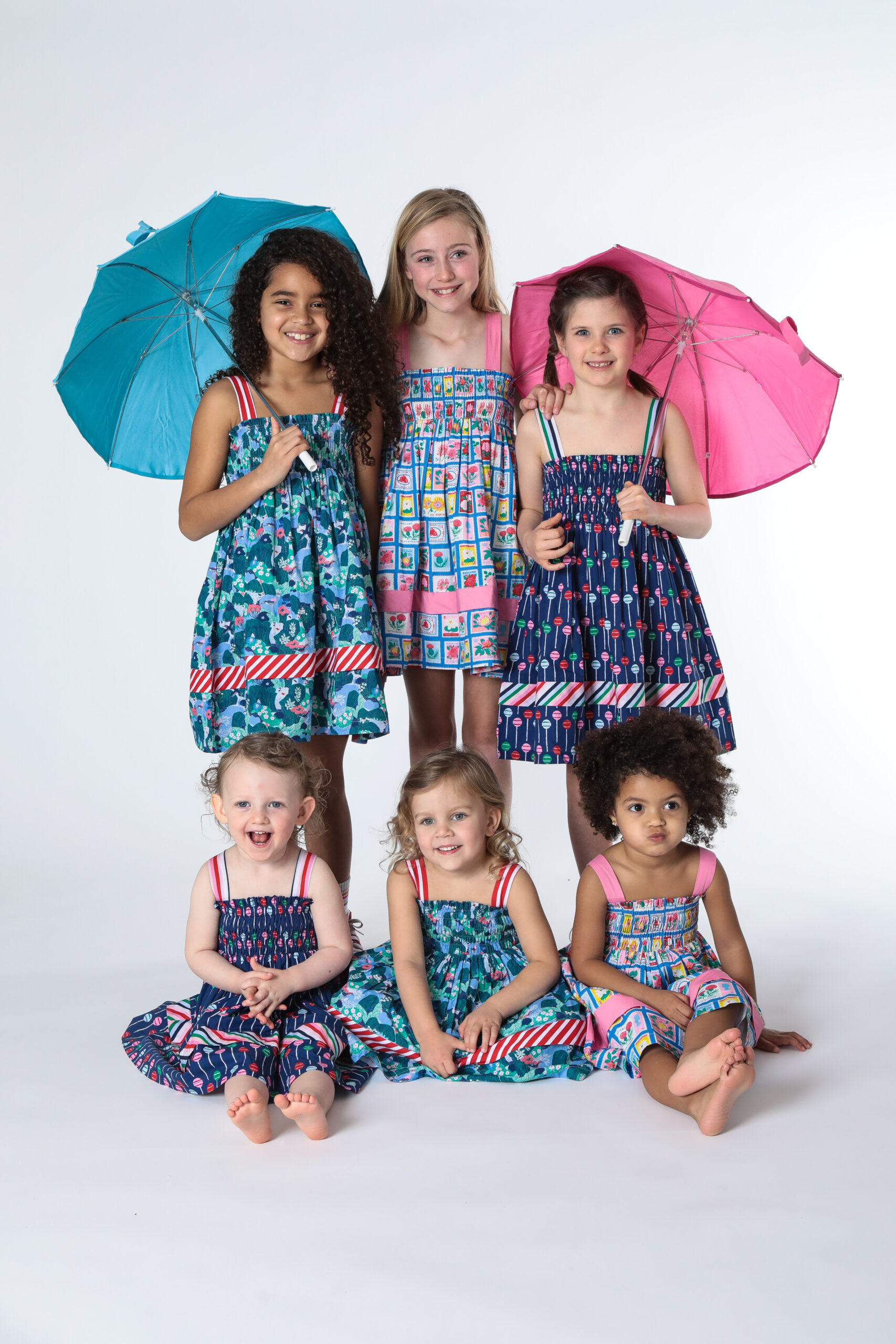
Is life sustainable on this planet?
It’s a question every industry must consider as it maps out a path into the future. But even those who are already thinking about renewable energy and organic food sources and other sustainable practices may find one area where waste feels inevitable: children’s clothing.
No matter what you dress them in, kids keep growing, and those bags of hand-me-downs keep on manifesting. It may feel like cheaper, disposable clothing is the answer. But a major movement toward sustainability in kids’ fashion says differently.
“A well-loved garment with great design will be happily passed along to siblings, neighbors and friends,” said Mindi Smith from Little Red Planet in Sag Harbor. “It becomes a cherished piece of your family’s story and will definitely not end up in a landfill six weeks after purchase.”
But it’s more than durability and quality that go into sustainable fashion. The supply chain touches so many aspects of industry, from farming and agriculture to production to transportation. Not to mention human rights and fair-trade practices. Truly sustainable fashion will consider all these aspects of the industry.
When Smith is considering carrying a brand at Little Red Planet, she looks at three main criteria: the use of sustainable materials, ethical practices in production, and supporting companies that give back to their communities.
“My entire company is built on this ethos,” said Smith. “I want to celebrate emerging and established designers who produce independent, sustainable collections that inspire parents and children alike.”
Because she is so mindful of what brands she carries in her shop, Smith believes every one of them is special. But there is one she points to as a leader in the industry.
“If you want the ‘grandmother’ of the sustainability kids’ fashion movement, it is Mini Rodini,” said Smith. “Everyone should take a page from their playbook.”
Kim Slicklein, who is about to open her first brick-and-mortar shop, Macrae Skye, in Amagansett, comes to the fashion and design world from a different perspective. She worked in sustainability since 2003, and was the worldwide president of OgilvyEarth, a corporate social responsibility firm.
“Then I had children,” she said, “and I couldn’t find clothing that was sustainable,” said Slicklein. “I found some organic things, but everything was one color. I wanted fun kids clothing that wasn’t fast fashion, doing more harm to the planet.”
The more she investigated, the more shocking the waste in the fashion industry became. “I learned that fashion is the second-most polluting industry in the world,” she said, “and that one garbage truck full of textiles is put in a landfill or incinerated every second.”
When she couldn’t find the solution, she decided to start creating it.
Everything in Macrae Skye is designed by Slicklein. And not only does she make sure to use sustainable practices every step of the supply chain, she also wants to break the boundaries that big companies have put on our kids regarding gender and identity.
“Most brands put girls in unicorns and rainbows, and boys in fire trucks and dinosaurs,” she said. “Why are we limiting kids? Why not have cool fun patterns or bright bold prints and colors and take away those gender-specific, conservative, traditional roles? Make it more open-minded.”
Jesse Spooner and Nicole Delma, owners of Mind Offline in Sag Harbor, look at the importance of sustainable goods from a children’s perspective.
“Choosing natural and sustainable materials for children’s goods is fundamental to how they develop and connect with the world around them,” said Delma. “Early on, it’s important they get a chance to understand where materials come from, how they are made, and why that’s good or not good for the planet.”
Some of their favorite sustainable goods in the shop right now include a wooden slingshot with felted balls, Eco wooden blocks that compare with Legos but made from bamboo, and beeswax crayons.
“These crayons smell amazing,” said Delma, “and wax is a particularly important material to harvest and develop sustainably, because it involves our pollinators.”
At Mind Offline, it’s about more than the products – it’s the experience. This spring and summer, they are offering a variety of workshops and events that bring this philosophy into practice, including loom work with foraged botanicals.
No matter how mindful you are of sustainability, one thing is certain: your children will grow, and there will be things you no longer need. That’s why Kim Slicklein created Tomorrow Skye, a program where she collects used clothing from any brand and donates it to domestic abuse shelters.
“Most women leave these dangerous situations with nothing but the clothing on their backs,” she said. “We’ve already donated 75 tons of clothing — that’s 75 tons that’s not in landfills but going to people in need.”
The key is reducing waste, and all three of these businesses are finding ways to do just that.
“I want to shift the way we shop, the way we consume,” said Smith. “And that starts with educating ourselves and our children about careful consumption.”